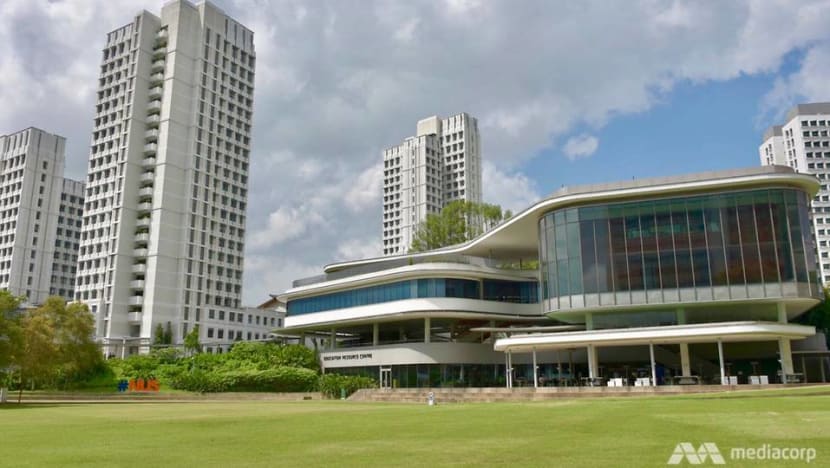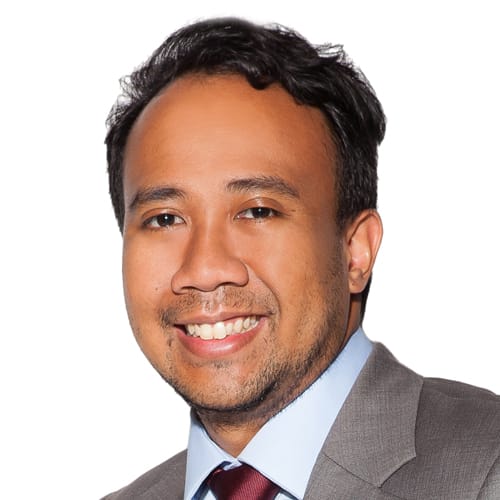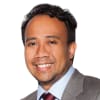Institutes of higher learning have 'processes and protocols' for dealing with foreign interference: Shanmugam

File photo of University Town at the National University of Singapore (NUS). (Photo: Alif Amsyar)
SINGAPORE: Institutes of higher learning (IHL) have processes and protocols when it comes to dealing with foreign interference, Law and Home Affairs Minister K Shanmugam said on Tuesday (Jul 6).
"Our IHLs have processes and protocols to maintain oversight over academic collaborations and partnerships, both local and overseas, and take measures to instil awareness among their staff on the risks of foreign interference," he said.
Mr Shanmugam was responding in a written answer to a parliamentary question by Member of Parliament Gerald Giam (WP-Aljunied), who had asked about recent cases of influence operations and foreign intelligence recruitment involving individuals who previously studied or worked in local academic institutions.
DICKSON YEO CASE
The question came after Singaporean Dickson Yeo, who spied for China against the US, was detained under the Internal Security Act (ISA) on Jan 29 for acting as a paid agent for a "foreign state".
According to US court documents, Yeo was recruited by Chinese intelligence operatives while studying for a PhD at the National University of Singapore’s Lee Kuan Yew School of Public Policy (LKYSPP) in 2015.
READ: Dickson Yeo detained under ISA for trying to provide reports on Singapore for 'foreign state'
Yeo carried out intelligence activities against Singapore from 2016 until his arrest in the US in 2019, the Internal Security Department said. He was tasked to source for information and provide reports on issues of interest to his foreign handlers, including information relating to Singapore.
Former top Singapore diplomat Bilahari Kausikan said that Yeo’s PhD supervisor at LKYSPP was Huang Jing. The professor was identified in 2017 as an “agent of influence for a foreign country” by Singapore’s Ministry of Home Affairs (MHA).
LKYSPP told CNA after Yeo was detained that it had strengthened "oversight and risk-awareness procedures" in relation to its education and research.
"We maintain an enhanced oversight on academic collaborations and partnerships, both local and overseas, and will also continue to keep a heightened awareness among all our staff and students on the risks of foreign interference," a spokesperson said.
Following news of Yeo's detention, CNA sought comment from Singapore's five other autonomous universities on new and existing measures against foreign interference.
The Nanyang Technological University, Singapore Management University, Singapore University of Social Sciences, Singapore Institute of Technology and Singapore University of Technology and Design did not respond to queries.
Mr Shanmugam said on Tuesday that for reasons of national security, the Government does not publicise the actions taken to deal with foreign states involved in influence operations and recruitment attempts in Singapore.
"Such actions must necessarily take place out of the public eye," he said.
FOREIGN INTERFERENCE OPERATIONS INCREASINGLY SOPHISTICATED
Mr Shanmugam highlighted that foreign interference operations are getting increasingly sophisticated and well-disguised.
"The affordances of the Internet have increased the potential of online hostile information campaigns, but covert attempts to exercise control or influence over organisations and individuals are just as insidious," he said.
"As the threats evolve, we need to continue to build up our capabilities to detect and disrupt such activities."
This includes introducing new laws to prevent and counter foreign interference in Singapore’s domestic politics, Mr Shanmugam said, adding that MHA is studying other countries' approaches and will "move on the proposals" when ready.
READ: Dickson Yeo applied for government jobs to access 'information of interest' for foreign handlers: ISD
Current "policies and measures" to minimise the risks foreign interference include laws governing political donations, broadcasts and societies, he said.
Authorities also conduct security clearance for public sector positions that have access to classified government information, he added.
Nevertheless, Mr Shanmugam said the "ultimate line of defence" against foreign interference must be a populace that is united in its belief that Singapore’s domestic affairs are for us alone to decide and that is discerning enough to identify attempts at manipulation.
"Through our security agencies’ engagement and outreach to constituencies within the public service and beyond, the Government will continue to raise awareness of the real risks and modus operandi of foreign actors, whether it takes the form of an online or offline influence operation aimed at shaping public opinion or policy-making, or foreign intelligence recruitment operation," he added.
"Organisations and individuals who are more vulnerable to foreign interference, whether by virtue of the activities or issues they are involved in, will need to be even more aware of these risks."












